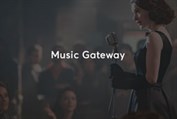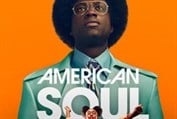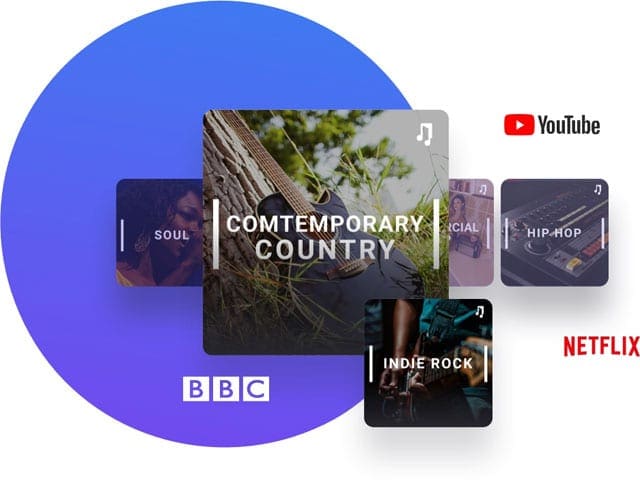How Radio Broadcasting Works & How To Get In Radio!
Background
Growing up in the sixties/seventies, there were very few radio stations to listen to. Literally, three!
Without going into the full history of radio, let’s start with Radio 1 which was launched in 1967, Capital Radio was launched in 1973, and we also used to listen to this station on AM called Radio Luxembourg. We knew Luxembourg was a foreign country, so we couldn’t understand why everyone spoke English, but it seemed to have a passion and naughty irreverence lacking from the other two stations.
If you were heavily into a specialist scene (soul, reggae, rock, disco, jazz etc.), there were a few specialist shows but no specialist stations.
For lovers of soul, disco and jazz-funk like me, there were two shows per week: Robbie Vincent on Radio London and Greg Edwards on Capital Radio. We would tape these shows from the radio, on cassette tapes, and play these tapes all week long, until the next show. In essence, these cassette tapes were our radio station.
How times have changed! I joined my first ‘pirate’ radio station in 1982 and joined Kiss FM in 1986. People ask me, “Why was it necessary to break the law?” Historically, some laws change when people break them! Emily Davison walked in front of the king’s horse during the 1913 Derby in the fight to secure the vote for women. Amazing to think that, at that time, women weren’t allowed to vote! If Rosa Parks hadn’t refused to sit at the back of the bus, when would the civil rights movement have started? Her bravery changed the lives of millions!
We didn’t view ourselves as revolutionaries and in no way could we be compared to those two great ladies. In short, we were just vinyl junkies who lived and breathed our record collections. Nothing gave any of us more pleasure than sharing a new tune by a new artist. Some of us weren’t even big radio fans; radio was a way of satisfying the appetite, and we knew that London’s black music fans were desperate for a station of their own.
In 1989, Kiss FM came off air to apply for a legal license and, in 1990, we were granted a London-wide FM license. The station is still going strong to this day but it wouldn’t have existed if it weren’t for a law-breaking, stellar cast of London’s finest DJs. I will return to the pirate Kiss FM line-up later.
Now, London has a wide variety of early stations on the FM dial, and every major city in the UK has more choice than I had when I was growing up!
Radio’s Rivals
In 1979, an English pop group called The Buggles recorded a song called ‘Video Killed The Radio Star’, then MTV was launched in America in 1981 and it seemed like music TV was about to supersede music radio but, with the advent of the internet, that battle has swung the other way!
Now that the youth market can access any video instantly with online radio stations, music TV (and music videos) have gone into decline. To compound matters, these days, some acts don’t always make a music video!
Radio’s major rival is now streaming. Many young people don’t have patience with radio either and, if they want to hear a song instantly, they no longer have to wait for a music station to play it, they can go to their favourite streaming site and hear it instantly, and there are plenty of streaming services to choose from.
The older audience (25+) are a different story altogether! Radio 2 has been bigger than Radio 1 for decades; young tastemakers schedule their own playlists, with a combination of YouTube, Spotify and iTunes, while the older audience is quite happy to sit and listen. The older demo prefers a friendly, authoritative telling them what’s new and hot. The wonderful new word for this is curation and one of the features of radio communication. The older audience appreciates a curator; an expert to guide them through the murky waters of popular music on British radio.
Oh, yes, that older audience is something else! I currently have a weekly show on Mi-Soul and this is a niche (soulful music) aimed at the 35+ audience. Not only do our audience listen all day (15.1 hours per day, according to a recent RAJAR survey) but we take them on holiday! A load of our listeners came with us to Ibiza last year (Mi-Ibiza) and danced like they were 30 years younger!
Nevertheless, the radio industry still provides the young audience with a stimulating choice of stations; yes, you can quickly find what you want online, but you can only search for what you know. After a while, even the coolest kid appreciates some guidance from a respected peer and will seek- out their favourite radio DJs on their favourite stations.
As with all things, the internet is a blessing and a curse! Ask any music artist if the internet has helped and they will say that it’s now easier to promote music via social media but, as everyone has access to the internet, opportunistic non-singers and non-musicians are promoting themselves as ‘pop stars’ and turning it into a very overcrowded market! Real singers and musicians are being marginalised in favour of social media stars.
Same with the internet is a blessing and a curse! Yes, it’s now easier to become a radio station broadcasting whizz kid but, as there are so many available, your audience will be much smaller; competition is fierce! The pie is now being sliced into much thinner slices. Even the most niche stations have direct competition.
If you want to join the radio industry, as I said, there are many around and, within them, many jobs that need doing. On the bigger stations, you will get paid, on the smaller stations, you will probably have to start as a volunteer (but most people do!)
Even though most radio listeners in the UK don’t have a digital radio, DAB stations are on the rise. New cars now have DAB radios fitted as standard so, eventually, digital will be on a par.
Broadcasters
On the analogue FM dial, you will still find the biggest stations, with the biggest audiences and the biggest budgets (Radio 1, Radio 2, Capital FM, Kiss FM, Heart FM, Magic FM etc.) Getting a radio show on one of these stations is like being handed The Holy Grail! Invariably, the presenters on these stations started somewhere much lower on the food chain!
I guess the major difference between now and 20 years ago is that there are many, many more places where you can start. As a broadcaster, your first radio shows are key, for two reasons: firstly, these shows allow you to get the hang of it; secondly, these shows allow you to make your rookie mistakes, and mistakes sometimes teach us our best lessons! Thus, in truth, it’s probably best you start on the smallest stations possible!
Back in the day, hospital radio and working at an amateur station was a traditional starting place, broadcasting to the patients, and there was even something called UBN (United Biscuits Network) between 1970-79; providing music to the workers at United Biscuits factories. At this stage, you were solely responsible for the content.
Many of the first Radio 1 DJs were on the first pirate stations, providing a broadcasting service from boats offshore, and some of today’s most respected broadcasters are former land-based pirate presenters, but there is actually no need to break the law anymore!
These days, wherever you are in the UK, as well as your local BBC station, BBC archive, commercial radio UK and your local commercial station, you also have any number of digital stations, internet stations (some more high profile than others), and community stations on FM, broadcasting to a radius of a few miles.
If you apply for a position, you will be asked for a ‘demo tape’, though we’re no longer talking about a cassette tape or even a CD! MP3 files are acceptable in an e-mail. Create a ‘demo’ of your voice linking to songs and/or talking about relevant issues and/or interviewing someone. Your demo tape needs last no longer than two minutes. Naturally, if you already have some kind of name and/or profile and/or social media numbers, that will enhance your application.
So, what kind of radio broadcaster do you want to be? Most young people want to do music radio and probably 100% want to choose music. This you will be able to do on small stations or specialist music stations; radio stations where you’re unlikely to get paid! There are a few big stations with specialist shows (1Xtra, Capital Xtra, Kiss FM etc.) but, naturally, the waiting list for these gigs is LONG!
Most music stations have a music policy and a playlist. Broadcasters are hired for their voice, not their music knowledge. You will be expected to follow the station’s music policy, as designed by the Head Of Music or Programme Controller.
If this doesn’t sound like fun, there are plenty of opportunities for specialist broadcasters on specialist music stations and internet radio, and these presenters will have a separate day-time job and/or make their money through nightclubs, pubs, parties, events etc.
If news/talk/sports radio is your preferred medium, most of the broadcasters on these stations come from a journalism background; after all, these stations are virtually radio newspapers. When applying for these positions, a solid background in local news media, at the very least, would be advisable.
News/talk/sports radio is centred around factual information. There is no margin for error. When the words leave your mouth, they must be accurate and true, so it’s vital to have experience in fact-collecting and fact-checking, or may be at the end of a lawsuit!
Specialist Broadcasters
So, you think you’re the next Pete Tong or the next Tim Westwood?
Specialist radio services and broadcasters all think two things: firstly, they all think they’re cooler than the guy already doing the job and, secondly, they all imagine they’re going to bring something fresh and new to the airwaves!
Let’s return to that all-conquering line-up on pirate Kiss FM; the list of DJs that gave the station its’ swagger and secured a legal license. In alphabetical order: Colin Dale, Colin Faver, Danny Rampling, Jay Strongman, Jazzie B, Judge Jules, Manasseh, Norman Jay, Patrick Forge, Paul ‘Trouble’ Anderson, Steve Jackson, Trevor Nelson and finally, The Zoo Experience.
MD Gordon Mac brought all of these guys (and more) together because they were all successful club DJs with a following. The assumption was: with their club following, they would immediately have a radio audience, and this theory worked well; these guys were the crème de la crème of London’s nightlife. The clubs promoted the radio shows, the radio shows promoted the clubs.
If you have aspirations to become a specialist broadcaster, you can leapfrog yourself to the front of the queue by having a name and a following. A natty demo tape will help too! Both Pete Tong and Tim Westwood both came from a strong club background. They were well-known before radio made them bigger.
Producers & how to get into radio production
However, some of you do NOT have aspirations to broadcast. For some, the thought actually terrifies you and you’d much rather be behind the scenes. It goes without saying, the ‘behind the scenes’ people are just as important as the broadcasters, and there are countless jobs within the industy that need doing. So let’s explore how they work.
As I mentioned before, the bigger stations have bigger budgets and can afford to pay most of their staff. All music presenters at the BBC have a paid producer, most presenters at Mi-Soul don’t and, if they do, it’s a friend working voluntarily.
So, what does a producer do and how do you learn radio broadcasting techniques? Assist in any way necessary. It might be writing a script for the presenter to read? It might be making a judgement on a boring caller? (“End the conversation as soon as possible!”) It might be deciding which guests to interview next week and then tracking those guests down? It might be making coffee? It might be starting a song, while the presenter nips to the toilet? It could be anything!
Some presenters, like me, don’t WANT a producer. I like being ‘self-op’ and doing the whole show by myself unless I am interviewing someone, and then I need someone to let them in, make them some tea and post photos of us on social media.
So, if being a producer sounds like your bag, again, start small. Assist any presenter on any station, there’s always online radio broadcasting over a mainline FM station. Get the necessary experience that you can add to your CV. Yes, maybe we should now talk about your CV?
Naturally, the more experience and more varied the experience, the better. To get a job as a producer, a voice demo is irrelevant. The CV is your gateway to a new job. The more jobs you’ve done and the more radio stations you’ve worked on the better! As with radio shows, make your mistakes early in your career. Once you’ve clocked up a few years of working on internet radio stations or local stations (no matter the size), an employer will assume you’ve learned some problem-solving skills (and hopefully you have?)
The bigger the names on your CV: the better. I’ve just completed 19 years and five months at MTV and every intern that worked for us went on to a decent job at a good company, many earned a position inside MTV!
Every radio station is different, in terms of style, size and structure. Every radio DJ is different (with his/her distinctive set of bad habits!) An aspiring producer should spend time at a pop music station, a specialist music station, a news station, a talk station and a community station. You will learn something different from each, and possibly learn what you’re best at?
It goes without saying, if you’re a music radio producer, your music knowledge should be as comprehensive as the broadcaster you are producing, if not more! Many years after his death, a BBC radio intern called a Jamaican phone number to enquire if Bob Marley was available for an interview!
The Staff
Naturally, every radio station has an infrastructure. Every radio station, even the smallest one, will have a big boss; a man at the top; someone who, ultimately, makes all the decisions. Typically, the MD (managing director) of any radio station has had a few decades of experience in radio and/or media and/or business. You will get there eventually!
Below the MD, on a commercial radio station, you will find the money-makers: the sales and sponsorship people that keep the business afloat. The sales people sell adverts. Adverts can be national or local. National adverts are big companies (like McDonalds, 20th Century Fox, Coca Cola etc.) who buy advertising packages centrally (from a sales house) and these adverts play all over the nation.
Local adverts are local companies who only want to reach the local community or a community of interest. For instance, on a rock music station, rock music record labels buy ‘local’ advertising to reach rock music fans.
Sponsorship has become a much more sophisticated sell in recent years. Companies used to sponsor a station, a show or a feature on a show, but now they sponsor everything: the weather, the traffic, the business news, the football results, a club night, a concert, Saturday night or sometimes a featured Record Of The Week? Sometimes, radio stations will create shows or features on shows just to attract a sponsor?
Radio stations also need marketing people to publicise the station and enhance its public image, a radio station will also have a press/PR person to deal with media enquiries. A smart radio station will also have a web person to create and maintain the station’s website and make sure their social networking pages are pushing out cool messages.
Naturally, there will also be a finance person to make sure the business is run properly and everyone gets paid! Commercial radio stations need to be successful businesses. There must be a profit or the station can’t move forward. With the BBC stations, funded by a license fee that you and I pay, these commercial considerations do not apply. No matter the ratings, the BBC will always be financed by us.
So, there are lots of jobs that need doing but, on a small station, you will find one person doing many jobs! Naturally, the more skills you have, the better your CV. If you find yourself in a situation where you’re doing a variety of jobs, it could actually work in your favour down the line?
Even though Mi-Soul is a small station (merely online & DAB across London, Brighton, Manchester and Glasgow), it is an influential station. It has average listening hours of 15.1 per day and, if you times that by the number of people listening, you get a very impressive ‘total hours’ figure. If you visit the BBC radio building in London, there are always people buzzing around but, when I go into the radio station on a Saturday afternoon to do my show, I am sometimes the only person in there; the staff work Monday to Friday, and there are systems in place that make it easy for me to steer the ship by myself. If anything goes wrong, a variety of people are a phone call away, but it just goes to show that radio stations vary massively. Nevertheless, there are lots of jobs out there just waiting for you!
FAQ Section
Q: How are radio waves used in broadcasting?
In radio broadcasts, sounds are encoded into radio waves, and then the waves are sent out through the atmosphere from a radio tower / location that covers a specific area. AM broadcasts use longer wavelength radio waves than FM broadcasts and because of their longer wavelengths, AM waves reflect off a layer of the upper atmosphere called the ionosphere and in general produce a lower quality than FM stations.
Q: How does radio broadcasting work?
Radio broadcasting works by translating sounds such as music, talking into electromagnetic waves called radio waves, which is then transmitted to the public via the radio station. It’s combined with another electric current called a carrier signal the combined signal is sent to an antenna which broadcasts the radio waves. The radio station is assigned a frequency which the listener will tune into on their device.
Q: How do you become a radio broadcaster?
Here are some career tips for how you become a radio broadcaster.
- Get a degree in media and or journalism
- Practice your broadcasting skills, record yourself and self learn
- Secure some work experience, or volunteer for work with a charity radio station (get in the door and cut your teeth in a radio broadcast environment)
- Apply for jobs are bigger corporations and broadcasters, so you can get to know people higher up the career ladder, as it’s who you know which can give you that step up and opportunity to progress in your chosen path
- Don’t give up, listen and take on board feedback and keep improving your skills in broadcasting
Q: Is it legal to broadcast FM radio?
In the USA the portion of the radio spectrum that lies between 87.9 and 107.9 MHz is set aside for FM radio broadcasts which required a license to operate. Even if you buy an FM transmitter that bears a statement of conformity, that isn’t a guarantee that it actually does.
Q: How far can a radio station broadcast?
VHF radio waves do not travel far beyond the human visual horizon, so reception distances for FM stations are usually limited to 30 to 40 miles. They can also be blocked by hills, buildings and large objects.
Q: How do I start my own FM radio station?
Here is the best way on how to start a non-internet radio station.
- Apply for an FM (frequency)
- Apply for a license. It’s illegal to operate an unlicensed radio station, even at extremely low power
- Source and secure funding to operate your station
Q: Do you need a degree to be on the radio?
No, you don’t need a degree to be on the radio. While a degree in media and or broadcasting will help you secure a role in radio, it’s not a minimum requirement. Radio DJs and presenters are mainly cut from a creative cloth, and therefore in a lot of cases don’t have a background in further education. A lot of broadcasts or journalism degree programs require students to complete internships before graduation. Radio broadcast internships provide hands-on experience in a station workplace.
Q: How much does a radio show host make?
A radio show host, DJ or presenter with mid-career experience which includes between 5 to 10 years of experience can expect to earn an average salary of $42,000 per year or £35,000 in the UK.
Q: How do I get a job in the radio with no experience?
What’s the best way to get a job in radio I hear you ask?
- Get in the door, in any role within a broadcaster, either small, local or large, even if it’s making the tea and being a runner. This is key and acts as a stepping stone to greater things.
- Secure volunteer or internship positions.
- Don’t worry about what you do within the company, it’s all about being around that environment and seizing opportunities that arise from within, showing ambition to your bosses and networking.
























